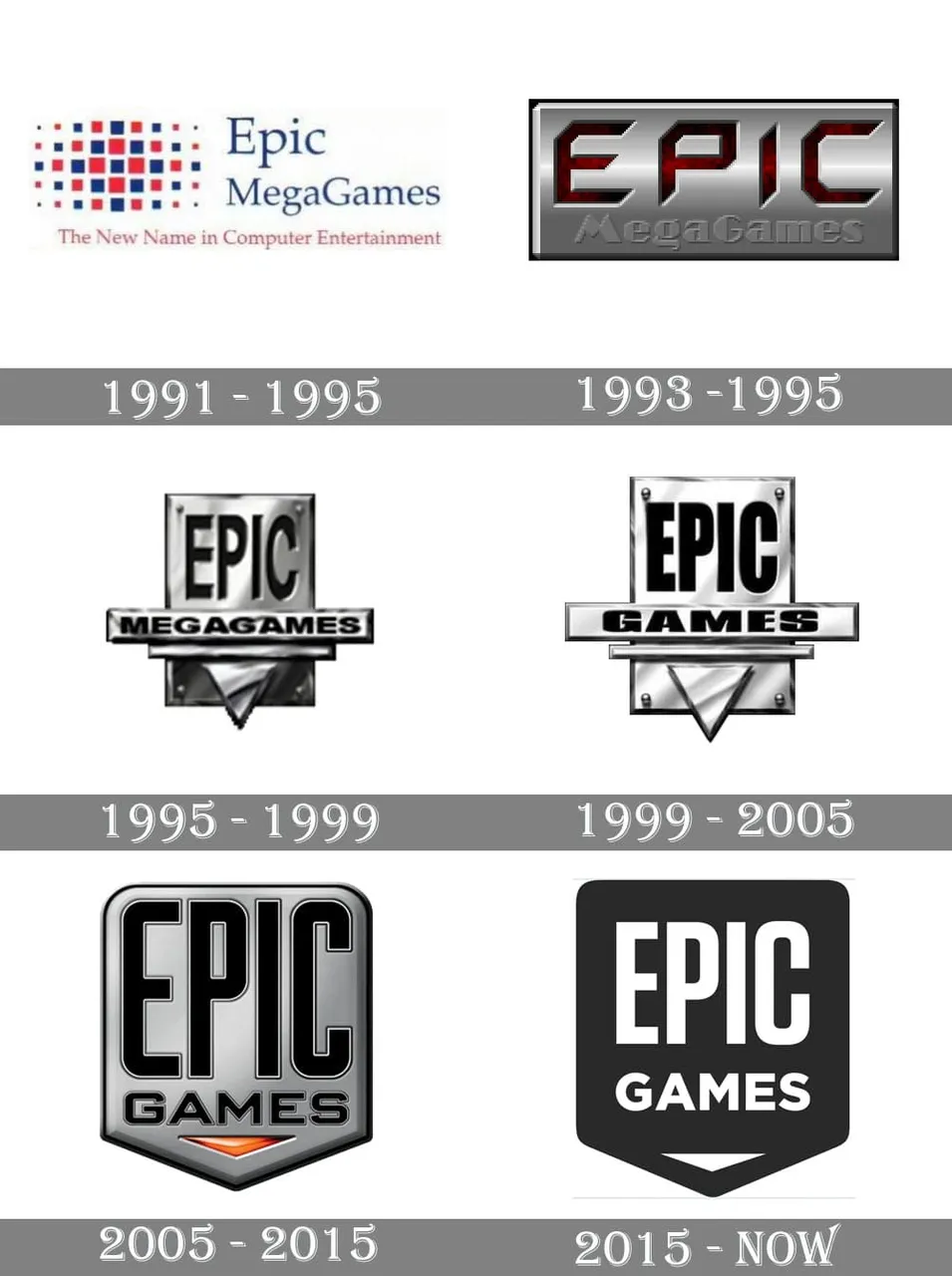
Source of photo: https://1000logos.net/epic-games-logo/
Before Epic Games built its Steam store and became popular with FPP and TPS games, namely "Unreal" (which quickly overshadowed the success of the second installment of "Quake"), "Unreal Tournament" (which in turn was the main rival " Quake 3 "and if the loading time were shorter, it might even be more iconic)," Gears of War "(which I haven't played until today, but I remember how popular it was), they created much more polite games. Pinballs, RPGs, arcade games, probably also a few others, but when I look at their works from the '90s, they mainly focused on this topic. They also released a great game, which can be an interesting item for mech fans - "One Must Fall 2097". It was surprising for me that Poles also contributed to the development of this company by creating "Electro Man" (known in Poland as "Electro Body"). ), which was an obvious copy of "RoboCop", "The Adventures of Robbo", "HearthLight". I did not come across information on other titles but did find some EM reviews - the game got mixed ratings, some praised the graphics, others criticized it, there was talk of no scrolling map, heavy steering, but according to the information I found - it was the first major game in the history of the Polish game-dev. I knew that Poles were talented in this matter from the beginning - our features are diligence, creativity and skills that are on a similar level as among foreign programmers, engineers, etc. but for many years and at various stages in our country's history, we lacked money for development. I saw it with my own eyes while attending computer exchanges with my father, his brother or family from Krakow (my mother's brother, older cousin), where players, game developers, sellers and more met, I also read that despite communism, it is quite we quickly got acquainted with new technologies and we had no reason to be ashamed of our neighbors at the time.
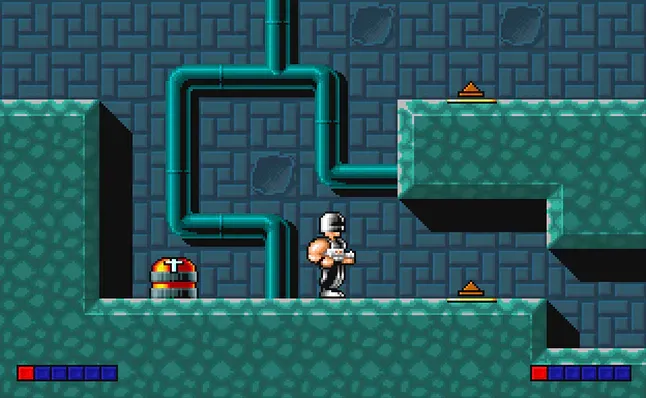
But I did not expect that we had our first big success abroad, I thought it was due to "Chrome" released in 2003 (and later "Painkiller", "Call of Juarez", "Witcher 1"). Yes, before there were "Jack Orlando", the RTS series "Earth 2140", our adventure games, "Gorky 17" and a few others, but I think they only achieved local success without sailing overseas to the US. This is a big reason for pride and who knows, if not for the things I wrote about above, maybe today we would not have 3 parts of "The Witcher" and other games?
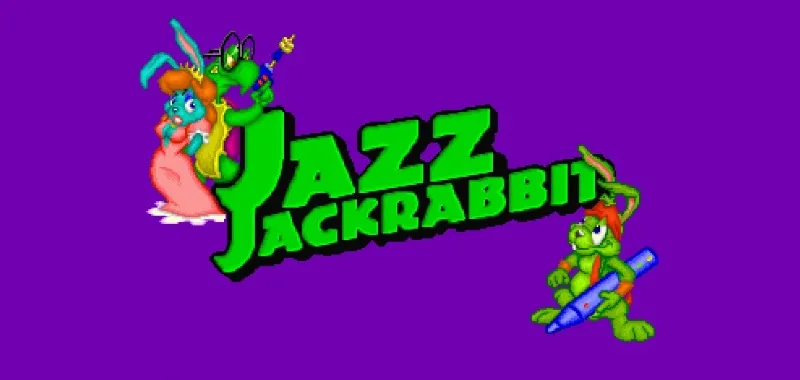
But I did chatter, and I haven't written anything about the main topic yet. Some time ago on GoodOldGames (I heartily recommend to all fans of retro games, there is probably no better platform for us - just install and play, for Netflix), both parts of "Jazz Jackrabbit" were on sale. At the time of the release of Part 1, there was already "Doom" that massacred Amiga, Commadore and other gaming platforms, but fans of arcade games still had more cool titles on the above-mentioned consoles. Yes, in 1995 "Rayman", "Gex" appeared, but before that we had "Commander Keen" and just "Jazz Jackrabbit" (if there were other popular games, I apologize for your ignorance and ask for a correction). While CK was not necessarily impressive, because Amiga games had better animations, sounds, etc., the Green Rabbit was colorful, fast, and it was fun for children, teenagers and older players alike. It was obviously a weaker game than "Donkey Kong Country 1 & 2", but at least we had no reason to be ashamed of being PC owners who didn't have much argument before.
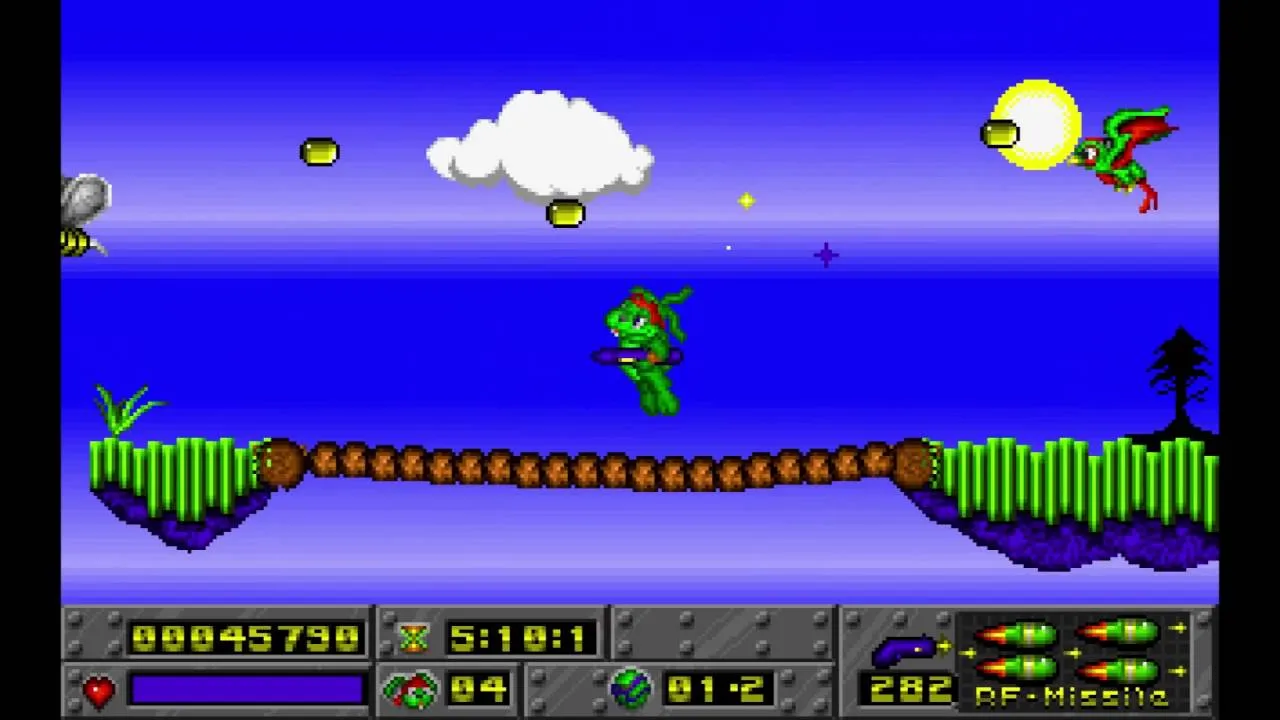
How does the title defend itself after many years? The game is very enjoyable. As I write these lines, I have had 2 episodes (1 on easy, 2 on medium) and played like a child when I was playing on my computer or at work at my father's. The game is still dynamic, full of secrets, addictive, the boards and monsters are interestingly designed, even on easy can be difficult (Although maybe it's because I'm too slow? . It's also colorful, the music is great, the animations although you can see that the old ones don't look bad! The only thing I could complain about are the levels that are sometimes too complex and sometimes not very readable (not too long, but you can get lost - it used to be more difficult in this matter, because we were more used to it, today more and more players, even those as experienced as me, prefer to have simpler entertainment because we don't have so much time to play, especially if you have a child or kids). These aren't big flaws, they didn't bother you too much at the time, because hardly anyone paid attention to it - what mattered was the animations, colors and atmosphere. If the above features were at a high level, we were inclined to turn a blind eye to such details. I miss those times a bit, too many things are coming out today and there is no physical ability to follow everything closely. I recommend that you download GOG and buy a few games, you can shut up for a few hours these days and get away from the pace of today's life.
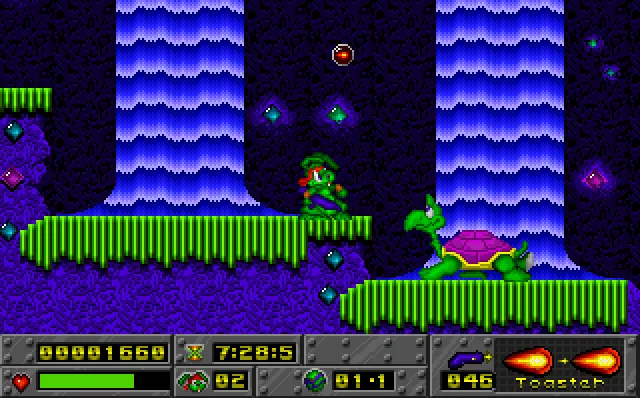
Zanim Epic Games zbudowało swój sklep a'la Steam oraz stało się popularne dzięki grom FPP i TPS, czyli "Unreal" (który szybko przyćmił sukces 2 części "Quake'a"), "Unreal Tournament" (który z kolei był głównym rywalem "Quake 3" i gdyby tylko czas ładowania map był krótszy, to być może by nawet była bardziej kultowa), "Gears of War" (w którego do dziś nie zagrałem, ale pamiętam jak popularny to był tytuł), to tworzyli zdecydowanie grzeczniejsze gry. Pinballe, gry RPG, gry zręcznościowe, pewnie też parę innych, ale jak przeglądam ich twórczość z lat '90, to obracali się głównie w tym temacie. Wydali też świetną grę, która może być ciekawą pozycją dla fanów mechów - "One Must Fall 2097" Zaskakujące było dla mnie to, że również Polacy mieli swój wkład w rozwój tej firmy tworząc "Electro Man" (w Polsce znane jako "Electro Body"), który był ewidentną kopią "RoboCopa", "The Adventures of Robbo", "HearthLight". Nie natrafiłem na informacje o innych tytułach, ale znalazłem niektóre recenzje EM - gra zdobyła mieszane oceny, niektórzy chwalili grafikę, inni ją krytykowali, mówiono o braku przewijania mapy, ciężkim sterowaniu, ale jak wynika z informacji, które znalazłem - była to pierwsza ważna gra w historii polskiego game-devu. Ja wiedziałem, że Polacy byli utalentowani w tej kwestii od początku - naszymi cechami jest pracowitość, kreatywność oraz umiejętności, które są na podobnym poziomie, co wśród zagranicznych programistów, inżynierów etc. ale przez wiele lat i podczas różnych etapów w historii naszego kraju, brakowało nam pieniędzy na rozwój. Widziałem to na własne oczy uczęszczając wraz z ojcem, jego bratem lub rodziną z Krakowa (bratem mamy, starszym kuzynem) na giełdy komputerowe, na których spotykali się gracze, twórcy gier, sprzedawcy i nie tylko, czytałem też, że mimo komunizmu, to dość szybko zapoznaliśmy się z nowymi technologiami i nie mieliśmy powodów do wstydu względem sąsiadów w tamtym czasie. Nie spodziewałem się jednak, że już wtedy mieliśmy pierwszy duży sukces za granicą, myślałem że to była zasługa "Chrome'a" wydanego w 2003 roku (a później "Painkillera", "Call of Juarez", "Witcher 1"). Tak, wcześniej były "Jack Orlando", seria RTS "Earth 2140", nasze przygodówki, "Gorky 17" i kilka innych, ale wydaje mi się, że osiągnęły tylko lokalny sukces, nie wypływając za ocean do USA. To duży powód to dumy i kto wie, gdyby nie rzeczy, o których wyżej napisałem, to może dzisiaj nie mielibyśmy 3 części "Wiedźmina" i innych gier?
Ale się rozgadałem, a jeszcze nic nie napisałem o głównym temacie. Jakiś czas temu na GoodOldGames (serdecznie polecam wszystkim fanom gier retro, nie ma chyba lepszej platformy dla nas - just install and play, jak na Netflix), były w promocji obie części "Jazz Jackrabbit". W czasach gdy wydano 1 część, był już co prawda "Doom", który zmasakrował Amigi, Commadore i inne platformy do grania, ale fani gier zręcznościowych nadal mieli więcej fajnych tytułów na w/w konsolach. Tak, w 1995 pojawił się "Rayman", "Gex", ale wcześniej mieliśmy "Commander Keen" oraz właśnie "Jazz Jackrabbit" (jeśli były inne, popularne gry, to przepraszam za ignorancję i proszę o korektę). O ile CK niekoniecznie robiło wrażenie, bo gry z Amigi miały lepszą animację, dźwięki itd. o tyle Zielony Królik był kolorowy, szybki, sprawiał przyjemność zarówno dzieciom, nastolatkom, jak i starszym graczom. Była to oczywiście słabsza gra od "Donkey Kong Country 1&2", ale przynajmniej nie mieliśmy powodu do wstydu jako posiadacze PC, którzy wcześniej nie mieli zbyt wielu argumentów w dyskusji.
Jak tytuł broni się po latach? Gra się bardzo przyjemnie. Gdy piszę te słowa, to przeszedłem 2 epizody (1 na easy, 2 na medium) i bawiłem się tak, jak dziecko, gdy grałem na swoim komputerze lub w pracy u ojca. Gra nadal jest dynamiczna, ma pełno sekretów, wciąga, plansze i potwory są ciekawie zaprojektowani, nawet na easy może sprawić trudności (Choć to może wynika z tego, że jestem zbyt wolny? Dawniej przechodziłem te poziomy bez problemu, a dzisiaj straciłem niejedno życie). Jest też kolorowa, muzyka jest świetna, animacje choć widać, że stare, to nie wyglądają źle! Jedyne do czego mógłbym się przyczepić, to poziomy które czasem są zbyt rozbudowane oraz czasami niezbyt czytelne (nie że zbyt długie, ale można się pogubić - kiedyś było w tej kwestii trudniej, bo byliśmy bardziej do tego przyzwyczajeni, dzisiaj coraz więcej graczy, nawet tych tak doświadczonych jak ja, woli mieć prostszą rozrywkę, bo nie mamy tyle czasu na granie, zwłaszcza jak ma się dziecko lub dzieci). Nie są to duże wady, wtedy niespecjalnie przeszkadzały, bo mało kto zwracał na to uwagę - liczyły się animacje, kolory, klimat. Jeśli powyższe cechy stały na wysokim poziomie, to byliśmy skłonni przymknąć oko na takie detale. Trochę tęsknię za tymi czasami, dziś wychodzi zbyt dużo rzeczy i nie ma fizycznej możliwości, by wszystko dokładnie śledzić. Polecam pobrać GOG i kupić kilka gier, można się zamknąć w tych czasach na kilka godzin i uciec od tempa dzisiejszego życia.